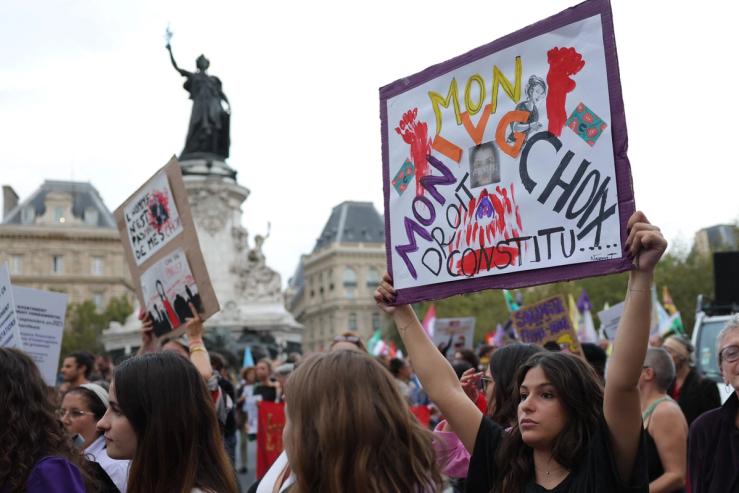The News
France’s National Assembly voted Tuesday to enshrine abortion rights in the country’s constitution, the first step toward what would be a historic move. President Emmanuel Macron had promised to make abortion an “irreversible” constitutional right after the U.S. Supreme Court overturned the right to abortion in 2022, a monumental decision that pushed nations across the world to reconsider their policies.
The French bill points out that the U.S. isn’t the only nation where abortion rights are being rolled back. “Unfortunately, this event is not isolated: in many countries, even in Europe, there are currents of opinion that seek to hinder at any cost the freedom of women to terminate their pregnancy if they wish,” its introduction reads.
International rights groups have long warned that the U.S. overturning Roe v. Wade could embolden other countries to follow suit, weakening abortion rights around the world. But while Roe falling likely motivated anti-abortion groups, “it has also motivated the global community to reassert the right to choose,” one abortion rights advocate told NPR.
Globally, just 6% of reproductive-age women live in countries where abortion is prohibited, and more than 60 countries have expanded reproductive rights since the 1990s. Only Poland, El Salvador, and Nicaragua had enacted more restrictive laws until the U.S. joined that list.
The View From France
The move by France was a “direct response” to the U.S.′ Roe v. Wade decision, which the bill explicitly cites. “While this freedom is not directly threatened” in France, the bill’s text read, “this is not the case in other countries.” France decriminalized abortion in 1975, but the right is not guaranteed in the constitution. The French Senate will now vote on the measure, where a conservative majority makes its passage uncertain.
But the government is already heralding Tuesday’s vote as a major victory: The National Assembly and the government “did not miss their rendezvous with women’s history,” France’s justice minister told Le Monde.
The View From Poland
Poland strengthened its existing abortion ban in 2020, removing an exception for fetal abnormalities. Abortion is now only legal in the nation if the woman’s life is at risk or the pregnancy was a result of rape or incest. The Polish law doesn’t criminalize abortion and instead targets anyone who helps another person access an abortion, but “what the law allows is not actually what is happening in practice,” TIME reported.
The Human Rights Watch alleged that women seeking abortions are still being persecuted, with Polish officials increasingly opening investigations “on questionable legal grounds against women and girls seeking medical care for miscarriages or after legal medication abortions, as well as against doctors,” according to the nonprofit.
The View From Mexico
Mexico’s Supreme Court voted to decriminalize abortion nationwide in September 2023, but stigma around the procedure is pervasive in the culturally conservative country, NBC News reported in November. Nearly 80% of the nation identifies as Catholic, and advocates say that abortion clinic staff and other medical providers often spread misinformation to dissuade patients from choosing abortion.
“They start to show you fake ultrasounds of what 12 weeks’ gestation looks like or the risks that could exist — for example, a uterine perforation, excessive bleeding or death,” one clinic administrator told NBC News.
The View From China
China’s foreign ministry criticized the fall of Roe in 2022, saying the U.S. was in no position to call itself a “human rights defender.” While China hasn’t dramatically rolled back abortion rights, local restrictions have been increasingly introduced since the early 2000s, according to the Asia Pacific Foundation of Canada.
That’s, in part, because China is trying to recover from the gender gap created by its one-child policy, under which the preference for male children led to many forced abortions. Local governments have long tried to stop the practice of sex-selective abortion, and some have introduced new restrictions in an effort to even out the sex ratio among children since the one-child policy ended in 2016.


